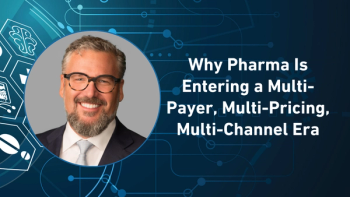
- Pharmaceutical Commerce - January/February 2017
Senators wrap up Turing-Valeant hearings on price gouging
A preamble for a next round of legislating drug pricing?
Give Sens. Susan Collins (R-ME) and Claire McCaskill (D-MO), leaders of the Senate Aging Committee, an “A” for effort for
On the other hand, the
The Committee report characterizes Turing, Valeant and two other companies (Retrophin and Rodelis Therapeutics, which acquired and then divested a sole-source generic during 2015) as exponents of a “hedge fund” model of pharmaceutical commercialization: buying the rights to (“investing in”) a drug, then jacking up its price and collecting the increased revenue (the “return” on the investment). The hallmarks of this strategy, says the report, are:
- Acquisition of a sole-source drug
- “Gold standard” status of the drug as the preferred therapy
- Small market status, such that the drug does not attract other suppliers, and have dependent populations unable to demand more-reasonable pricing
- Closed distribution of the drug, in part through a small number of specialty pharmacies
- Price gouging—the business payoff, as it were, based on the ability to raise prices without the need to invest in production or R&D.
Not mentioned as a hallmark of the hedge fund model—but one that figured in product marketing plans in some cases, is copay and patient assistance programs (PAPs). In the case of Valeant in particular, the report focuses on the motivation of the patient assistance to grow its market and to minimize critical media coverage. “Valeant repeatedly touted its PAP, the [Valeant Coverage Plus Program], in response to criticisms of its Cuprimine and Syprine price increases. But based on internal Valeant documents, the Committee believes that these programs were driven not by altruism, but by Valeant’s desire to extract monopoly profits and then conceal that fact from the public.” Elsewhere in the report, it is noted that “Properly structured patient assistance programs can help beneficiaries obtain drugs they might not otherwise be able to afford.”
Yet another component of Valeant’s planning was to assess how slowly FDA would approve a competing generic entry into the markets for some of its drugs (which is ironic if only because, prior to selling off its generic business to Teva Phama, Valeant was a leading generics manufacturer). FDA’s backlog of generic approvals, while shrinking, figures in a variety of legislative efforts to address drug pricing overall.
What to do?
The report concludes with six recommendations:
- Enact the Increasing Competition in Pharmaceuticals Act, introduced by Chairman Collins and Ranking Member McCaskill, to incentivize competition to address regulatory uncertainty, small market size, and other factors that serve as limitations to generic entry
- Encourage generic competition by ensuring the right to obtain samples and simplifying Risk Evaluation and Mitigation Strategies
- Consider allowing highly targeted, temporary prescription drug importation to provide prompt price relief for major price increases in off-patent drugs
- Take steps to prevent the misuse of patient assistance programs and copay coupons
- Reinvigorate the Federal Trade Commission to take greater enforcement action on drug company mergers, operations, and drug market dynamicsImprove transparency in the health care system
--most of which have been proposed in other examinations of the US drug pricing system. The Collins-McCaskill bill,
PhRMA, the industry’s trade association, was quick to
In its concluding remarks, the Committee report is almost wistful about the existing system of drug pricing in America: “Although antitrust enforcement may seem to be an appropriate tool to combat massive price increases on drugs, it is unclear whether the actions of the four companies examined by the Committee violated current antitrust laws. The evidence is mixed. It is possible that the business model pursued by the Valeants and Turings of the world was attractive in part because it was legal.”
Articles in this issue
almost 9 years ago
Hey, what’s this supply chain stuff?almost 9 years ago
Healthcare confronts opioid addictionalmost 9 years ago
FDA issues guidances on biosimilarity naming, interchangeabilityalmost 9 years ago
US Drug Pricing Debate: Finding some dearly needed real solutionsalmost 9 years ago
A conversation with Mark Sell, MD Logisticsalmost 9 years ago
Getting to prescribers via the diagnostics routealmost 9 years ago
Pharmaceutical Cargo Security Coalition (PCSC) sets expanded agendaalmost 9 years ago
Commercial IT moves to the cloudalmost 9 years ago
Consultant pharmacists and long-term care 101Newsletter
Stay ahead in the life sciences industry with Pharmaceutical Commerce, the latest news, trends, and strategies in drug distribution, commercialization, and market access.




